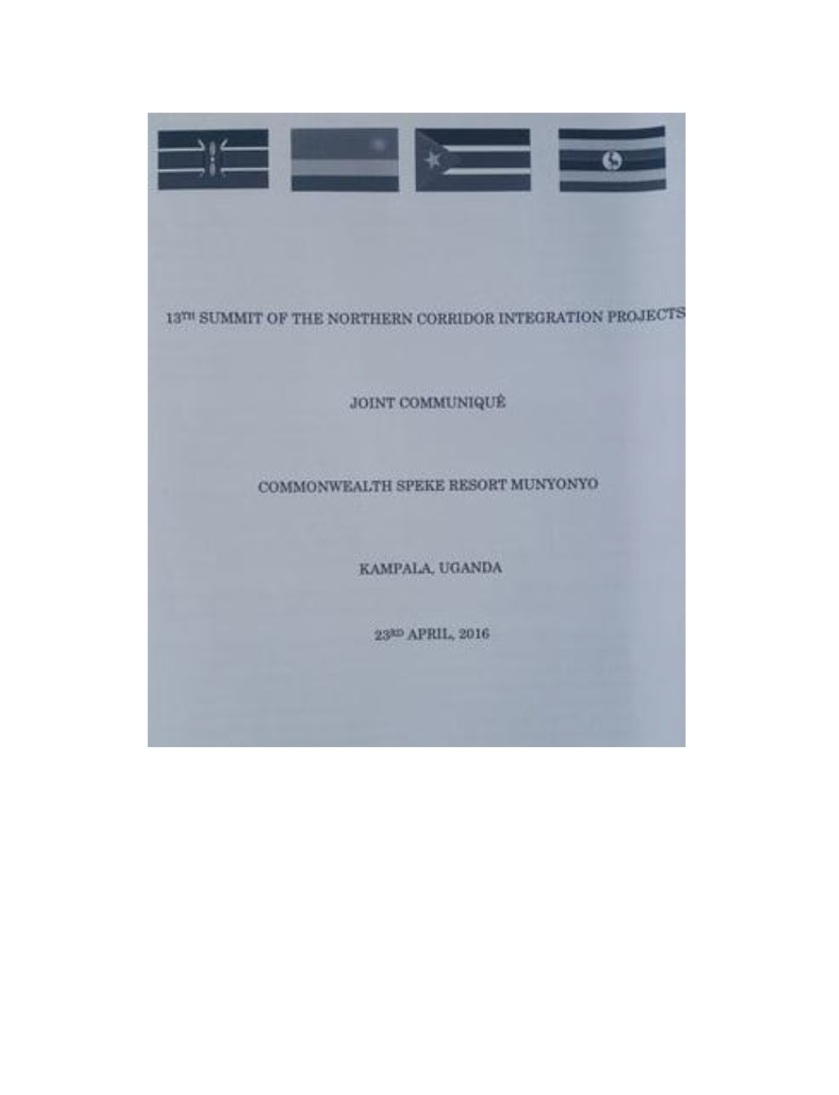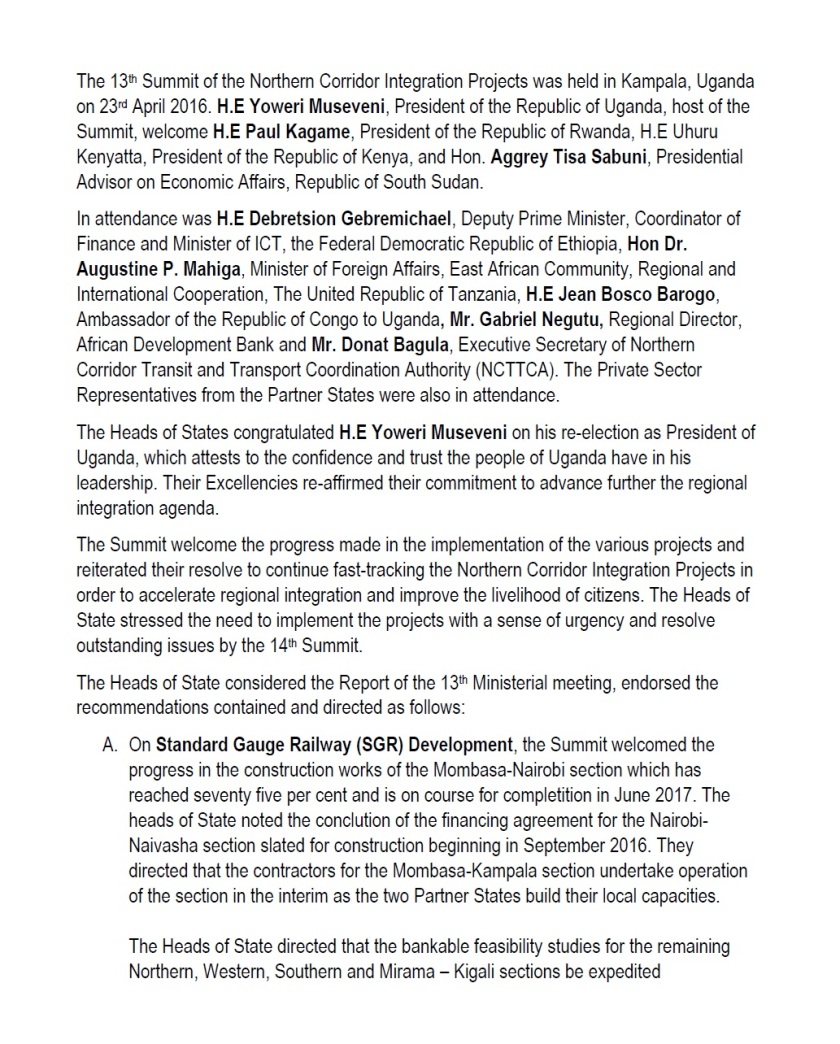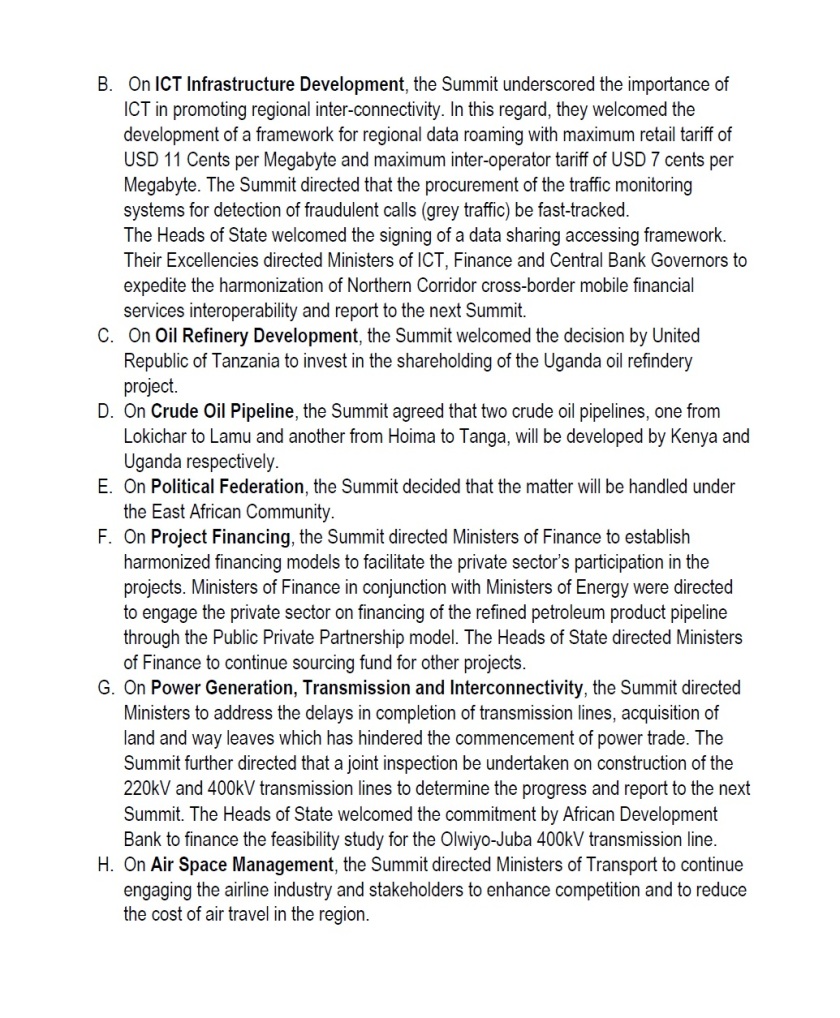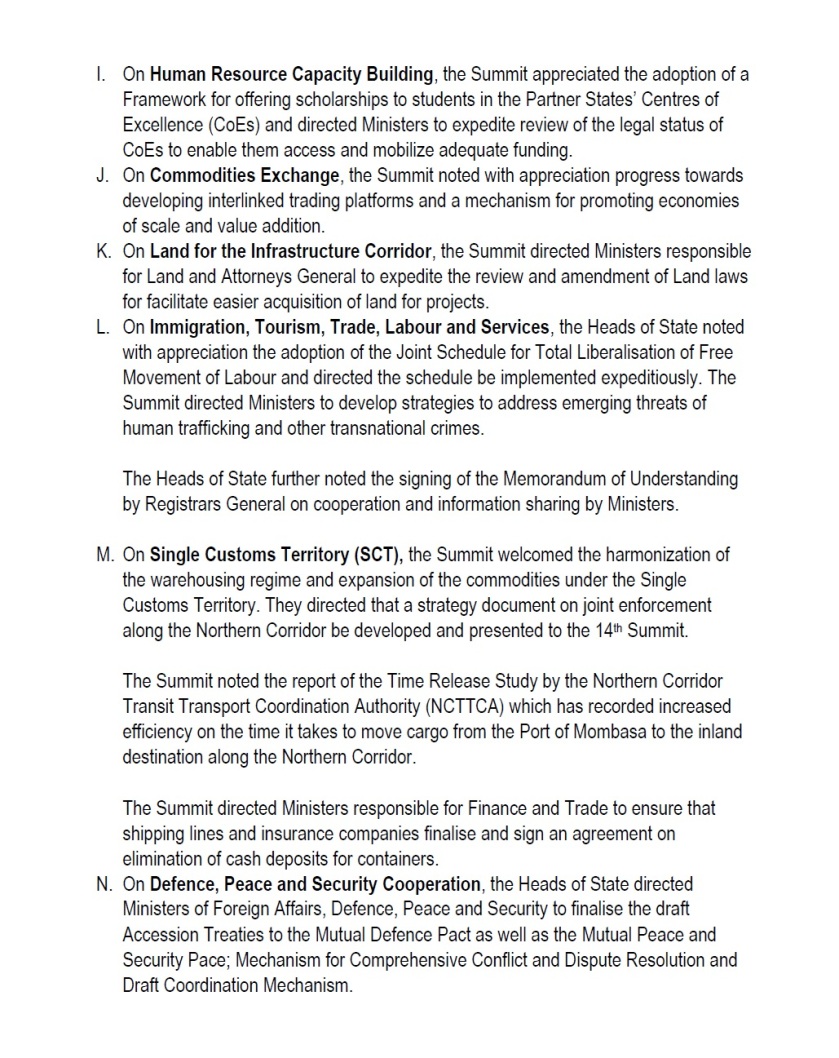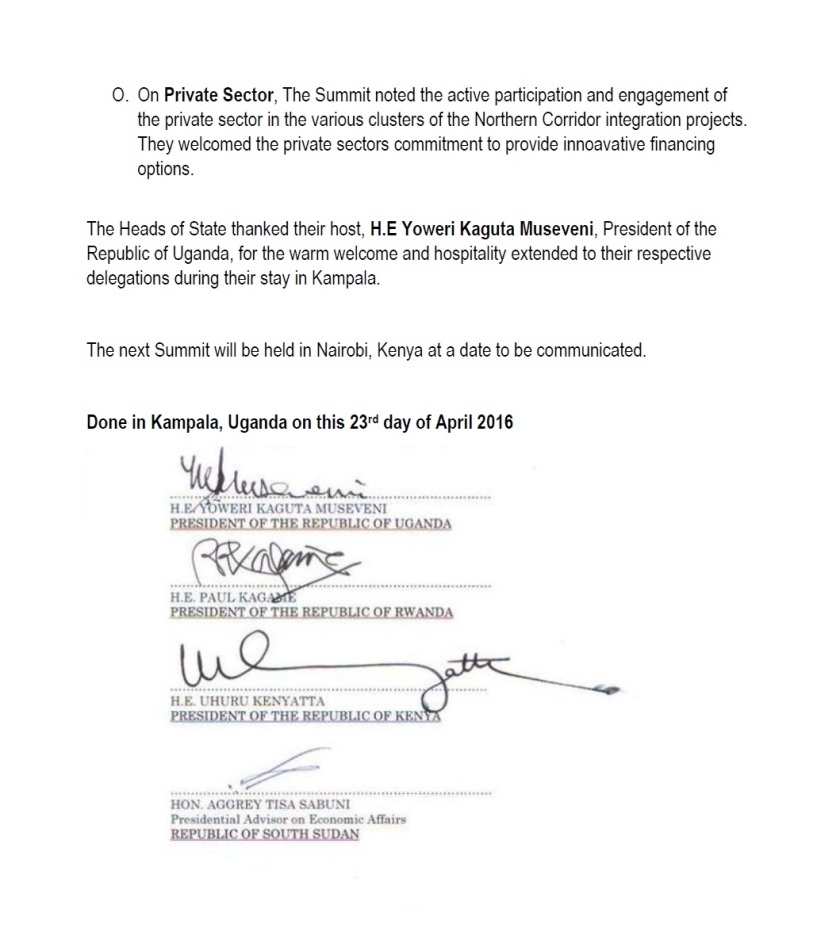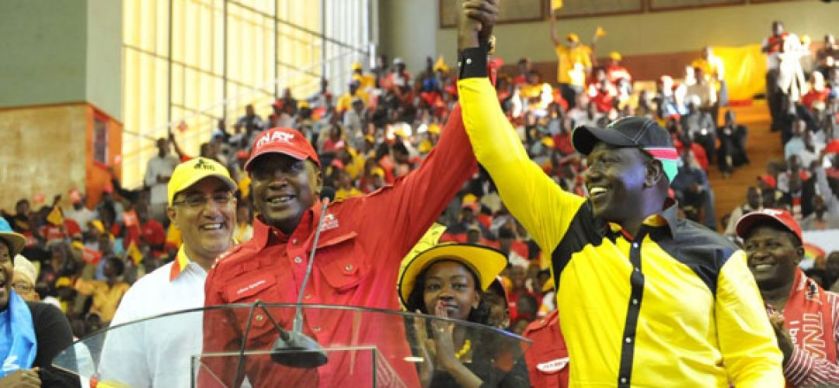
There is certain movements that will strike as more expensive for the East African Community (EAC). This being for the Government of Uganda (GoU) and the Government of Kenya (GoK), who has big plans of petroleum pipelines from their oil-fields and to the coast. That being from Turkana to Lamu Port. While the Ugandan oil goes from Hoima to Tanga Port in Tanzania. Both development and industrial projects will have issues with the funding. The World Bank has supported massive infrastructure projects in both countries.
Therefore, for the two counties big development and oil industry, this is giant set-back, since they have to find funding and loans for the pipelines on the open market. Even with higher interests and making the profits of it lesser, than it would have been with a World Bank loan. It would not hurt the pocket as much as it does on the open market. The banks wants more profits themselves and also make sure they are paid-in-full.
With all this in mind. There are speculations, but first. Parts of the self-answering service. Before we look at the reactions in Kenya and Uganda. All of are important, as the state is involved in the licensing and building the pipelines. They are directly into the development and procurement of the pipelines. That is why this is big blow for the administrations and their possible tax-profits on it.
Word Bank Q&A:
“Q. How is “upstream” oil and gas defined?
Upstream is an industry term that refers to exploration of oil and natural gas fields, as well as drilling and operating wells to produce oil and natural gas” (World Bank, 2017).
“Current projects in our portfolio would continue as planned. However, no new investments in upstream oil and gas would be undertaken after 2019, unless under exceptional circumstances as noted in the decision” (World Bank, 2017).
Kenya Pipeline:
“The announcement by the bank, which has significant interests in Kenya’s oil prospecting sector, does not bode well for the country’s anticipated entry into the club of oil producing nations beginning next year. Analysts said they do not expect an immediate reaction to the announcement even as they acknowledged that it takes the shine from oil in the long term” (…) “Locally, the World Bank is offering technical support to the Kenyan government, through the Kenya Petroleum Technical Assistance Project, to prime all stakeholders for commercial oil production and sale. The six-year programme is scheduled to run until February 2021 and involves the World Bank managing a Sh5.2 billion fund set up by investors from Germany, Norway and Britain. The World Bank’s private lending arm, International Finance Corporation, is however directly involved in Kenya’s oil fields, having a 6.83 per cent stake in Africa Oil, the Canadian exploration firm with interests in northern Kenya oil blocks” (Mutegi, 2017)
Uganda Pipeline:
“The pipeline, is expected to be completed by the year 2020, when the country is scheduled to start oil production. In fact, Uganda’s President, Yoweri Museveni and his Tanzanian counterpart recently commissioned the construction of the East African Crude Oil Pipeline. The two leaders laid mark stones for the crude oil pipeline in Mutukula, Kyotera district and Kabaale in Hoima district. Total E&P Uganda, a subsidiary of French oil giant, Total S.A, is spearheading the construction of the crude oil pipeline on behalf of the joint venture partners. Adewale Fayemi, the general manager, Total E&P Uganda says discussions are ongoing to discuss on the formalities of how the pipeline will be run. Already, an agreement has been reached that the East African Crude Oil Pipeline (EACOP) will be run and managed by a Special Purpose Vehicle (SPV) – private pipeline company. This means that a private company will be incorporated with joint venture partners – Tullow Uganda, Cnooc Uganda Ltd and Total E&P Uganda, and the governments of Uganda and Tanzania as shareholders in the company” (Ssekika, 2017)
Certainly, this will put a strain on the projects. They have to deliver another type of arrangement to make sure they get funding and have the funds to pay the added interests the banks wants. The added points on the dollar and the interest-rates will hit state-owned firms and the state itself. Since the pipelines most likely becomes more expensive and will be less profitable.
That the World Bank is pulling out of these projects is all within line of the Paris Accord, as they have professed is the reason. Still, this will make these projects more expensive and make sure they are earning less on it. Unless, the crude-oil prices are going up to a level that makes these investments even more profitable. That is only for time to tell. Since it is costly projects and also sophisticated to build. There is needed lots of expertise combined state planning to achieve the development plans.
This is just the beginning, but the pipelines and these investments are vital for both Kenya and Uganda. As the governments are already borrowing state funds on the possible earnings from the oil reserves in their basins. Therefore, they need to drill and need the petrodollar as quickly as possible. Peace.
Reference:
Mutegi, Mugambi – ‘World Bank dims Turkana oil hopes’ (14.12.2017) link: http://www.nation.co.ke/business/World-Bank-dims-Turkana-oil-hopes/996-4227848-u02v8n/index.html
Ssekika, Edward – ‘East African Crude Oil Pipeline: The Inside Story’ (11.12.2017) link: http://www.oilinuganda.org/features/economy/east-african-crude-oil-pipeline-the-inside-story-details-emerge-of-how-the-crude-oil-pipeline-will-be-financed-managed.html
World Bank – ‘Q&A: The World Bank Group and Upstream Oil and Gas’ (12.12.2017) link: http://www.worldbank.org/en/topic/climatechange/brief/qa-the-world-bank-group-and-upstream-oil-and-gas



